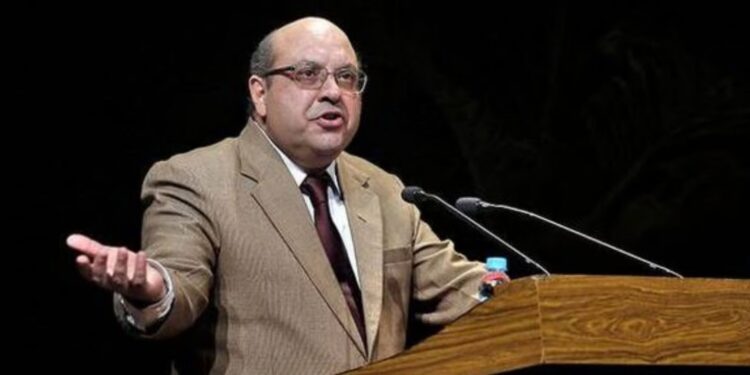Former Supreme Court judge Justice Rohinton Nariman on Thursday recounted the events surrounding the acquittal of prominent BJP leaders in the Babri Masjid demolition case, despite significant interventions from the Supreme Court. Justice Nariman, during his address at the inaugural lecture of the Ahmadi Foundation, shared how political figures, including former Deputy Prime Minister LK Advani, former Chief Minister Kalyan Singh, and senior BJP leaders Murli Manohar Joshi and Uma Bharti, were acquitted by the trial court in 2020.
Justice Nariman, who had played a pivotal role in restarting the trial, explained how the case had been dormant for nearly 25 years. As a Supreme Court judge, he intervened under Article 142 of the Constitution to ensure the resumption of the trial, which had been stalled for over two decades. However, despite the Supreme Court’s efforts, Special CBI Judge Surendra Yadav, who handled the case, acquitted all the accused, later taking up a post-retirement appointment as Deputy Lokayukta in Uttar Pradesh.
“This is the state of affairs in this country,” Justice Nariman remarked, expressing disappointment over the eventual outcome. He was delivering a lecture on ‘Secularism and the Indian Constitution’ and also releasing the biography The Fearless Judge, which honours the legacy of Justice AM Ahmadi, the 26th Chief Justice of India.
The Babri Masjid demolition case, which had dominated political discussions for decades, culminated in the 2020 acquittal of all accused by a special court in Lucknow. The court stated that the Central Bureau of Investigation (CBI) had failed to present conclusive evidence proving the existence of a conspiracy to demolish the mosque. The accused were initially charged under various provisions of the Indian Penal Code, including rioting, promoting enmity between religious groups, and criminal conspiracy.
Justice Nariman outlined the sequence of events that led to the acquittal. He explained that two FIRs had been lodged after the Babri Masjid demolition—one (FIR 197) against the Kar Seva activists involved in the destruction, and the other (FIR 198) against BJP leaders for allegedly inciting the act. However, due to procedural errors, the trials of the two FIRs were conducted separately, leading to the exclusion of the conspiracy charge from the proceedings.
He explained how, in 2017, the case came to his attention by chance when he was sitting with Justice Pinaki Chandra Ghose. At the time, no progress had been made for 25 years. He noted that a special court had been constituted for FIR 197, but FIR 198 was not included in the process, causing a bifurcation of the trials and the loss of the conspiracy charge.
In response, Justice Nariman and his bench exercised their powers under Article 142 to consolidate the cases, reinstate the conspiracy charge, and ensure a single, unified trial. “We used our powers under Article 142 to transfer the Raebareli proceedings to Lucknow, reinstate the criminal conspiracy charge, and directed a special judge to try the case day by day without adjournments, with the stipulation that the judge would not be transferred and the trial would conclude in two years,” he explained.
Justice Nariman went on to describe how the trial judge, despite the Supreme Court’s order, applied for an extension after two years. Unaware that the judge was due for retirement, the Supreme Court made the unprecedented decision to prevent his retirement until the judgment was delivered.
“After 3.5 years, the judge ultimately acquitted all the accused. After this, he retired and was appointed Deputy Lokayukta in Uttar Pradesh,” Justice Nariman said, expressing his dismay at the outcome. “This is how things turned out, despite all our efforts.”
Justice Nariman’s comments highlighted the procedural and political challenges in the long-running Babri Masjid demolition case, illustrating the complexities of judicial processes and the influence of political power in legal matters.

















